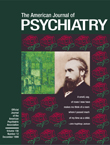The Secret Strength of Angels—7 Virtues to Live By
Dr. Flach has written a warm, inspiring book filled with the lessons of a lifetime as a practicing psychiatrist and distinguished teacher and author. Angels, he notes, are not a common topic in psychiatry, but angels give Dr. Flach a way to reach out a wise and loving hand offering guidance to psychiatrists, other mental health professionals, and people dealing with life’s many challenges.
“Psychiatrists,” he writes, “aren’t known for believing in God or angels. But some do, and I guess I’m one of them.” After reviewing the history of angels not only in the Jewish and Christian faiths but also in other religious and spiritual traditions throughout the world, he notes that the word “angel” is derived from the Greek word for messenger. Angels are personal go-betweens linking individual human beings with God. Flach sees seven cardinal virtues of angels: choosing, knowing, loving, communicating, guiding and protecting, healing and helping, and spiritually growing. Flach describes his book’s message as the idea of “human beings learning something from the qualities attributed to angels that they might find valuable in their own very real, very visible lives here on earth.” With respect to the role of science in the study of angels, he notes, “Maybe we scientists can’t prove there are angels. But we can’t prove there aren’t either.”
The author weaves a seamless fabric of moving autobiographical stories and a rich spiritual life into a guidebook for mental health professionals to help their patients and themselves live better lives. My favorite advice was about the common problem of insomnia, which he notes is often caused by anxiety. “People are afraid to let themselves fall asleep for any number of reasons.” He later writes, “Sleep requires you to be willing to allow something to happen that you cannot will,” and “to do that, you must have your physical, psychological and spiritual life in order. You have to trust yourself. Trusting your angels can help too. If you have difficulty sleeping, you might try crawling under the covers and thinking peaceful and reassuring thoughts about the angels who will look after you throughout the night. And count angels as you doze off. Counting angels is probably a lot more effective than counting sheep.”
Catching the book’s spirit, I think of the author as an angel bringing his comforting message to practicing mental health professionals, not just for the wisdom it clearly manifests, but for the language it offers psychiatrists in talking with their growing number of spiritually oriented patients about how to regain control and connectedness when they feel adrift in an unloving, lonely world.



